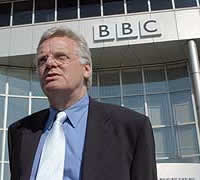 Developments in the last week at ITV have brought into focus the challenges the BBC faces in keeping alive Mark Thomson’s view of a 360 degree future where the BBC can dominate the UK media scene.
Developments in the last week at ITV have brought into focus the challenges the BBC faces in keeping alive Mark Thomson’s view of a 360 degree future where the BBC can dominate the UK media scene.
Grade will be a formidable figure, who can question the right the BBC has to be in on every new development and we can expect the issues around the BBC’s desire to launch British equivalents to Google and MySpace to be aired in sections of the UK press.
Following the double headed departure of Dyke and Davies after controversial reporting on the Government’s policy on Iraq, it was essential to restore normality to the ‘much loved institution’ and Michael Grade was the reassuring figure who became Chairman, but over two years have elapsed and the times have changed. To prove the BBC Trust is at arms length from the BBC management, a change of focus is expected.
The BBC is not in the position it was and having sold what some consider as key assets, its IT and engineering is now managed by the German company Siemens and its presentation is serviced by Red Bee owned by Australian investors; the move towards the publisher broadcaster model has gone far further than many expected.
 Thomson and Grade made the case that it was vital to the BBC’s continuance as a independent voice that a strong licence fee settlement was agreed to ensure the BBC’s vision was maintained. The Problem though, is that one of the few things Blair and Brown are in absolute agreement on, is that there is a strong case for limiting the BBC’s licence fee and exercising stronger financial discipline on the ever extending ambitions. Thomson’s high risk strategy of calling so strongly for a five year above inflation settlement is now looking a little like he may have overplayed his hand.
Thomson and Grade made the case that it was vital to the BBC’s continuance as a independent voice that a strong licence fee settlement was agreed to ensure the BBC’s vision was maintained. The Problem though, is that one of the few things Blair and Brown are in absolute agreement on, is that there is a strong case for limiting the BBC’s licence fee and exercising stronger financial discipline on the ever extending ambitions. Thomson’s high risk strategy of calling so strongly for a five year above inflation settlement is now looking a little like he may have overplayed his hand.
The BBC continues to fight to maintain its involvement in all areas of media and its ambitions to provide a free 7 day window for its on demand ‘catch up TV’ may not be the BBC Trust nod through that the Governors would have provided in the past, both Five and Channel 4 are giving their viewers the chance for online downloads at a price and a free version of a similar type could be considered to affect the business of commercial operations. HD too is a service the BBC considers it must offer to viewers but the cost of super serving a large screen owning elite could be costly and politically questionable.
Leading favourite to be the head the BBC trust is David Dimbelby, but some observers say he is too much associated with the old regime to offer the independence that the government would like to see in the new body. Chancellor Brown is sure to favour someone who he feels will limit the BBC’s ever widening ambitions and offer a prudent steer on the corporations finances.
 To me, there is something about the pleasure of listening to radio that is intrinsically linked to a discrete box that is a radio, and the PC experience does not quite match up, but the chance to tune into thousands of radio stations from the four corners of the world is something that excited me.
To me, there is something about the pleasure of listening to radio that is intrinsically linked to a discrete box that is a radio, and the PC experience does not quite match up, but the chance to tune into thousands of radio stations from the four corners of the world is something that excited me. No it’s not the time for you to throw me a lavish surprise celebration ‘do’ (mark 9th August in your diaries for that one), it is time to tell you about the gift for those who have nearly everything … or nothing.
No it’s not the time for you to throw me a lavish surprise celebration ‘do’ (mark 9th August in your diaries for that one), it is time to tell you about the gift for those who have nearly everything … or nothing.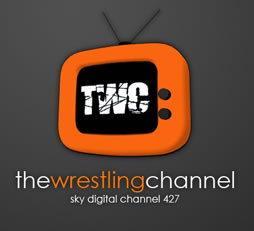 The intention is that this new programming will start with Birthdays and then open up into other anniversary days to help it fit its ongoing remit ‘as your big day tv’ and it’ll also put the content on the Web for further targeted enjoyment. Merry Christmas TV and Happy New Year TV are already in planning.
The intention is that this new programming will start with Birthdays and then open up into other anniversary days to help it fit its ongoing remit ‘as your big day tv’ and it’ll also put the content on the Web for further targeted enjoyment. Merry Christmas TV and Happy New Year TV are already in planning. BirthdayTV prices start at the pretty reasonable level of £30 for 15 seconds, with a minute coming it at £100. Booking is via an online form, with video being sent in by post, at least ten days before broadcast.
BirthdayTV prices start at the pretty reasonable level of £30 for 15 seconds, with a minute coming it at £100. Booking is via an online form, with video being sent in by post, at least ten days before broadcast.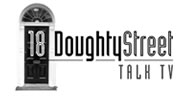 Now there’s been much talk of the death of traditional linear TV and it appears that the demise of the traditional broadcasters in the UK is taking a little longer than some expected. Perhaps hidden behind the excitement of Google buying YouTube and the UK start of two further channels on the Freeview platform; Five US and Five Life is a channel that could be the harbinger of how TV channels in the future will launch.
Now there’s been much talk of the death of traditional linear TV and it appears that the demise of the traditional broadcasters in the UK is taking a little longer than some expected. Perhaps hidden behind the excitement of Google buying YouTube and the UK start of two further channels on the Freeview platform; Five US and Five Life is a channel that could be the harbinger of how TV channels in the future will launch.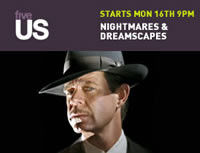 The relatively innocuous content is lodged somewhere between the fashionable haphazard Zeitgeist of UGC (User generated Content) and the bland professionalism of the big broadcasters, time will tell if there’s a hole there that this will fill.
The relatively innocuous content is lodged somewhere between the fashionable haphazard Zeitgeist of UGC (User generated Content) and the bland professionalism of the big broadcasters, time will tell if there’s a hole there that this will fill. In an ideal world, waiting near the top of the new OFCOM boss Ed Richards’ in-tray, there should be a folder marked ‘Sky Monopoly’ and on it a brightly coloured post-it with the words anti competitive clearly inscribed.
In an ideal world, waiting near the top of the new OFCOM boss Ed Richards’ in-tray, there should be a folder marked ‘Sky Monopoly’ and on it a brightly coloured post-it with the words anti competitive clearly inscribed. The area where Sky has decided not to use DVB is for its Conditional Access encryption.
The area where Sky has decided not to use DVB is for its Conditional Access encryption.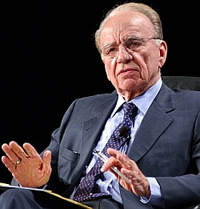 If that TV service then wants to charge the subscribers to their service they have to use that special version of Videoguard CA.
If that TV service then wants to charge the subscribers to their service they have to use that special version of Videoguard CA.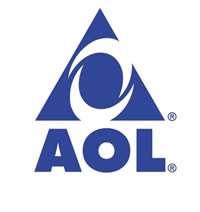 In a sure sign that TV content on the Web is going to be as important as TV content on the TV, AOL has signed up everyone’s (in certain parts of the UK at least) favourite ‘geezer’ cook Jamie Oliver.
In a sure sign that TV content on the Web is going to be as important as TV content on the TV, AOL has signed up everyone’s (in certain parts of the UK at least) favourite ‘geezer’ cook Jamie Oliver. But it’s a ‘win win’ scenario for Oliver and AOL, Oliver will be able to plug his latest book and AOL are expecting non-subscribers to sign up for their free Webmail accounts.
But it’s a ‘win win’ scenario for Oliver and AOL, Oliver will be able to plug his latest book and AOL are expecting non-subscribers to sign up for their free Webmail accounts. The UK’s broadcasting and telecommunications regulator OFCOM last week made clear its opposition to potential EU regulation. It fears it will straight-jacket the emerging new wave industries aiming to propel high tech growth in the EU zone over the coming years.
The UK’s broadcasting and telecommunications regulator OFCOM last week made clear its opposition to potential EU regulation. It fears it will straight-jacket the emerging new wave industries aiming to propel high tech growth in the EU zone over the coming years.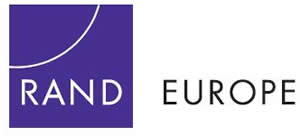 The study also makes clear its’ worries that excessive regulation could mean that countries outside of the EU would benefit from the expected growth in non traditional delivery of multimedia content, before it has established itself in Europe.
The study also makes clear its’ worries that excessive regulation could mean that countries outside of the EU would benefit from the expected growth in non traditional delivery of multimedia content, before it has established itself in Europe. The news that OFCOM is to review its position on Voice Over IP services (VOIP) – the way we can make low cost or free phone and video calls currently from our PC’s generally using call centre-type headsets – is part of the evolution of these types of service from guerrilla geek to middle class mainstream. Now that Tesco’s are marketing VOIP services it’s fair to say that it’s a ‘regular’ service/product.
The news that OFCOM is to review its position on Voice Over IP services (VOIP) – the way we can make low cost or free phone and video calls currently from our PC’s generally using call centre-type headsets – is part of the evolution of these types of service from guerrilla geek to middle class mainstream. Now that Tesco’s are marketing VOIP services it’s fair to say that it’s a ‘regular’ service/product. Prices for the new device are not yet released, but industry observers are talking of a figure around a £100 to make this potentially cost saving purchase.
Prices for the new device are not yet released, but industry observers are talking of a figure around a £100 to make this potentially cost saving purchase. Last week was the annual get together of TV ‘luvvies’ in Edinburgh and this year, as for the last few years, the current moguls felt it necessary to behave like Scrooge, reflect on their previous misdemeanours and take a bit of a look at TV to come.
Last week was the annual get together of TV ‘luvvies’ in Edinburgh and this year, as for the last few years, the current moguls felt it necessary to behave like Scrooge, reflect on their previous misdemeanours and take a bit of a look at TV to come. The spectre of Banquo’s ghost in the shape of everyone’s (now) favourite caterer, Mr Charles Allen, was there and delivered the keynote address, he of course blamed all and sundry for the mess ITV is in – ‘nothing to do with me guv’ should have been the title.
The spectre of Banquo’s ghost in the shape of everyone’s (now) favourite caterer, Mr Charles Allen, was there and delivered the keynote address, he of course blamed all and sundry for the mess ITV is in – ‘nothing to do with me guv’ should have been the title. BT Media and Broadcast the business to business outfit within BT’s Global services division has announced an alliance with Entriq.
BT Media and Broadcast the business to business outfit within BT’s Global services division has announced an alliance with Entriq.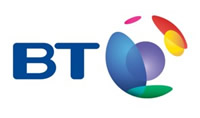 Headquartered in San Diego, California, Entriq have offices dotted around the world and have a host of existing big name broadcast customers that includes MTV Networks, NBC Universal and the UK’s Channel 4 television.
Headquartered in San Diego, California, Entriq have offices dotted around the world and have a host of existing big name broadcast customers that includes MTV Networks, NBC Universal and the UK’s Channel 4 television.